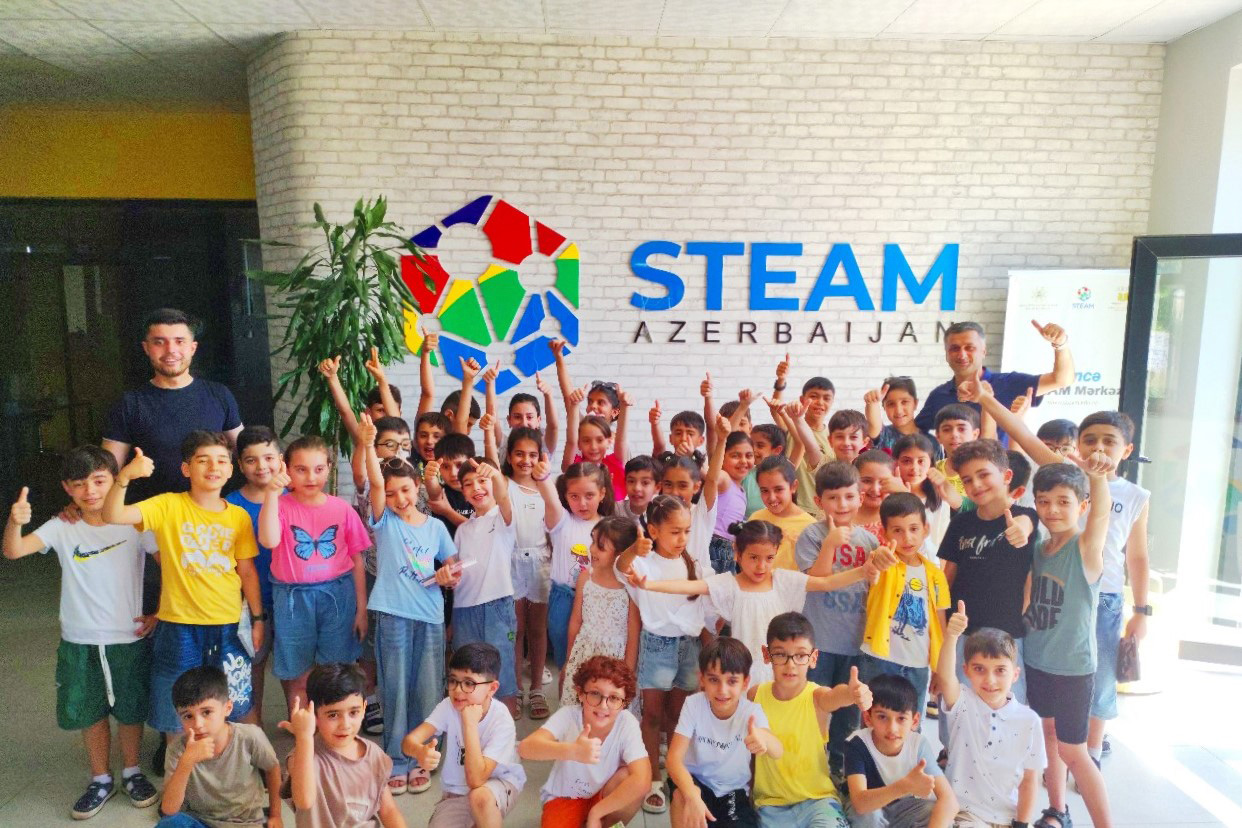The “ STEAM Azerbaijan” project
STEAM: Science, Technology, Engineering, Art & Math
Date of creation: 2019
Aim: To develop 21st century skills in students such as critical and creative thinking, collaboration, effective communication and an innovative approach to problem solving. The project promotes the teaching of different subjects in an integrated way by creating a practical and creative learning environment. Students learn to apply their theoretical knowledge in practice by working on projects aimed at solving real-life problems.
The project also aims to accelerate students' adaptation to modern technologies and improve their skills in using innovative tools such as ICT equipments, robotics, 3D modeling and engineering. This approach is not limited to the transfer of knowledge, but also aims to develop students' thinking, initiative and leadership skills that will enable them to contribute to their community in the future.
Information: In general education schools where the project is implemented, the training process is carried out in the following specialties: “3D printing”, “Coding with single-board microcontrollers”, “Micro:bit and Arduino”, “Engineering” (electrical engineering, chemical engineering, industrial engineering, genetic engineering, etc.), “Biotechnology”, “Nanotechnology”, “Mechatronics and robotics”, “CAD and CAM systems”, (“3D modeling, printing, CNC laser engraving and cutting”), 'Unmanned aerial vehicles” (training drones), AUV and ROV systems (autonomous underwater vehicles and remotely operated vehicles). The training process is carried out in accordance with the content developed under the “Alternative Energy” and “Entrepreneurship” programs.
Students are currently being trained in various programs at Steam Centers in Baku, Khirdalan, Sumgait, Guba, Ismayilli, Aghdash, Barda, Tovuz, Shamkir, Zagatala, Gakh, Sabirabad, Shirvan, Lankaran, Mingachevir and Ganja.
More than 3,000 students across the country are benefiting from training programs such as “ArtLab”, “CodeLab”, “Mechatronics and Robotics”, “Satellite Technologies”, “Drone Technologies”, “Programmable Systems”, “Alternative Energy Sources”, “ROV and AUV Systems”, “Unmanned Surface Vessel Systems”, designed for different age groups based on the programs listed in the Steam Centers.
Scope: The Steam project covers 252,711 students in grades 4-9 from 398 general education schools. There are 21 STEAM Centers throughout the country.
From the 2024-2025 academic year, the project will also be implemented in primary school classes (4th grade). In addition, from this school year, the project will also be implemented in the liberated territories and in Nakhchivan.

